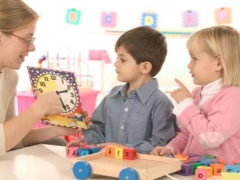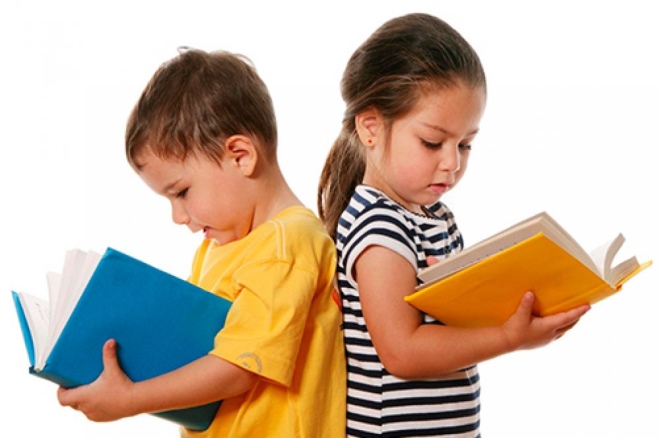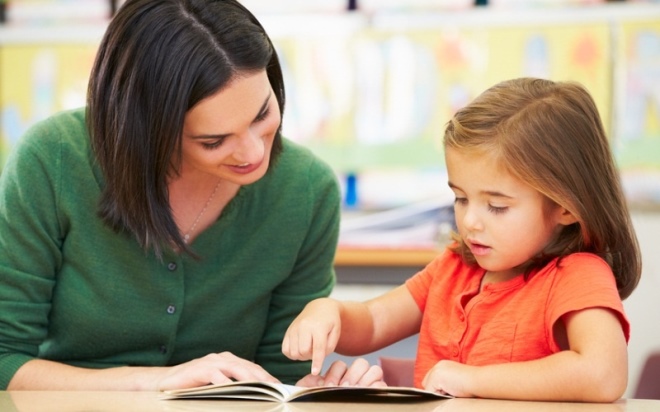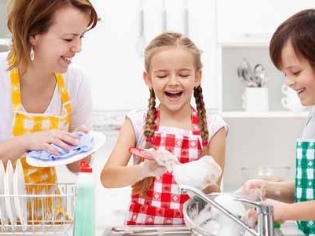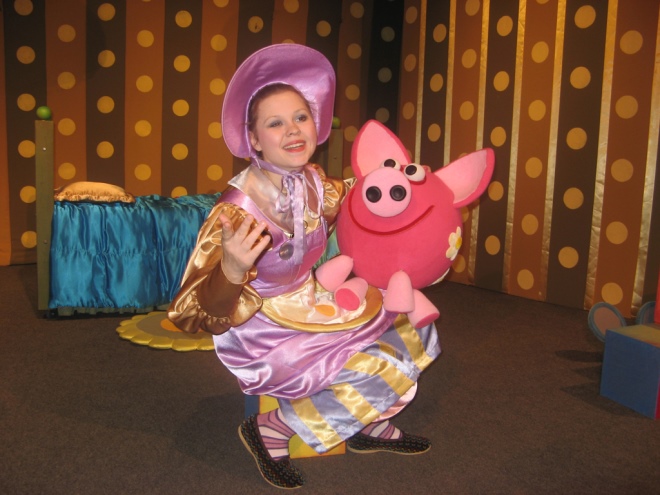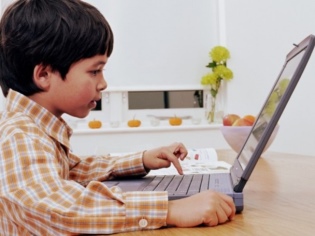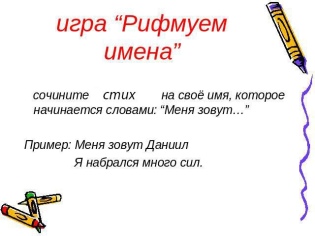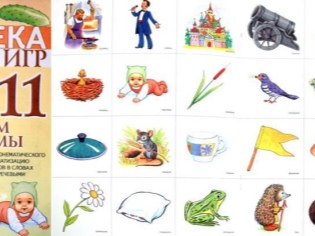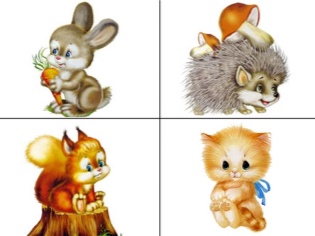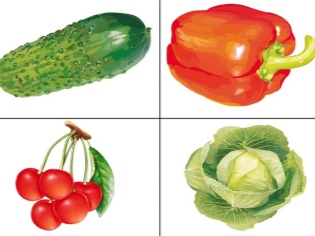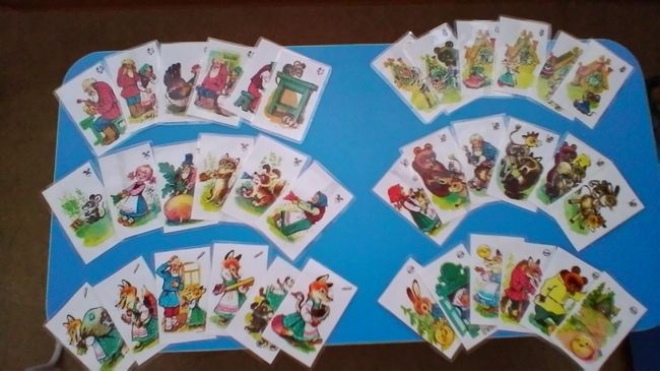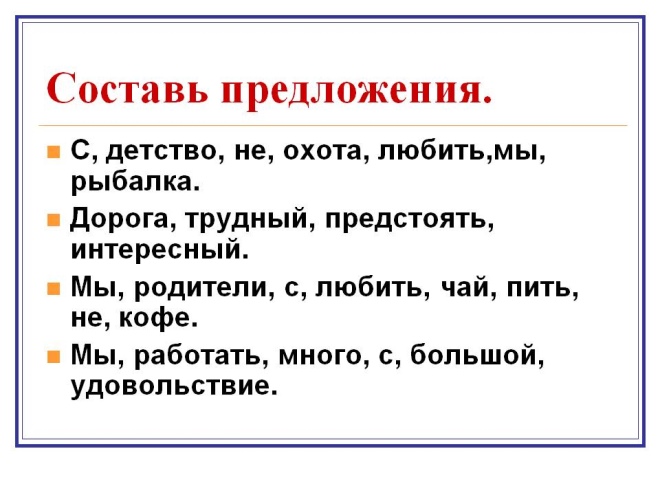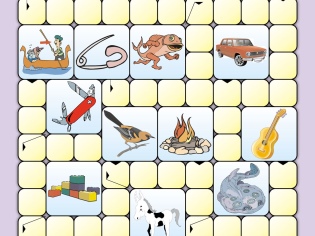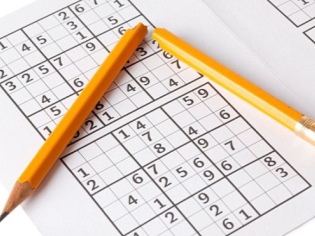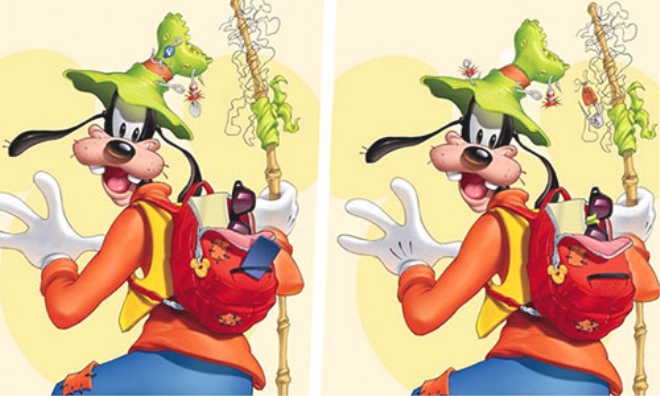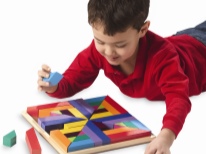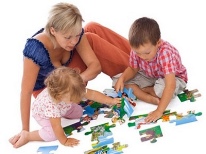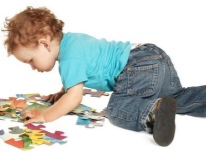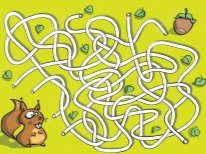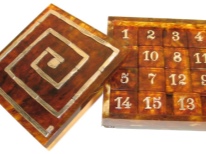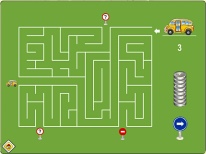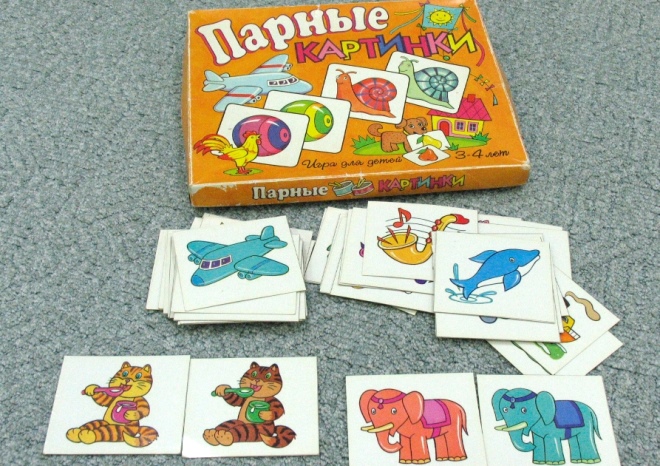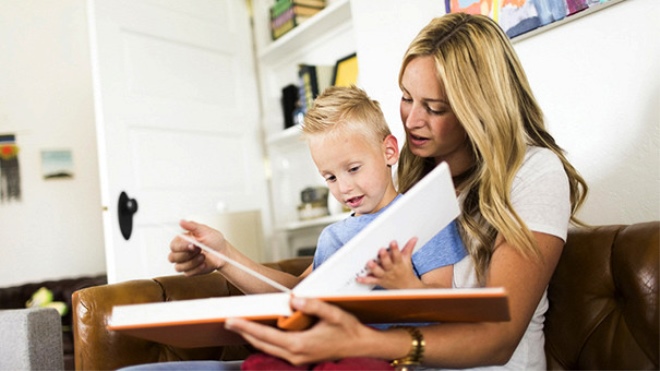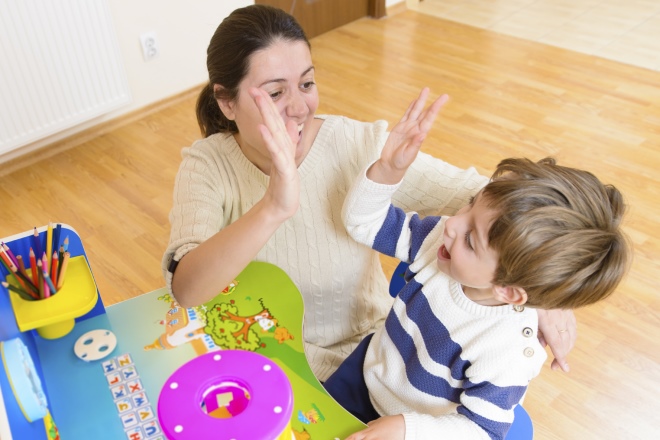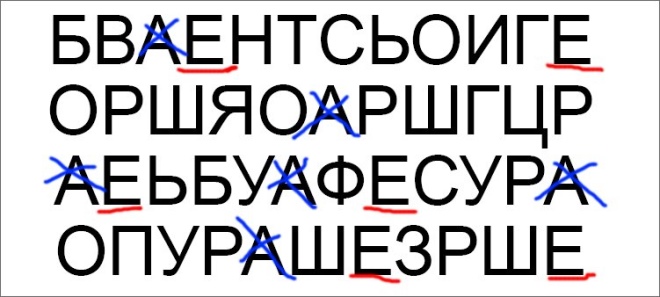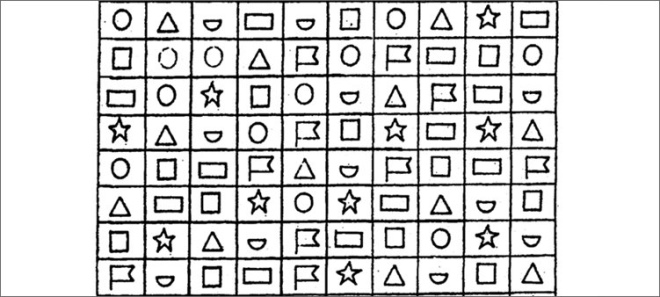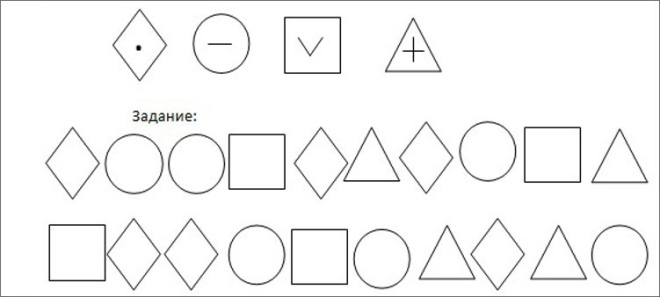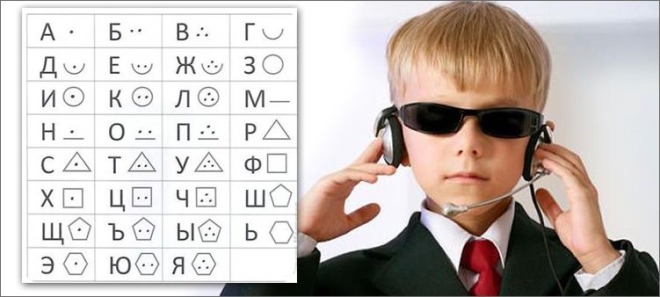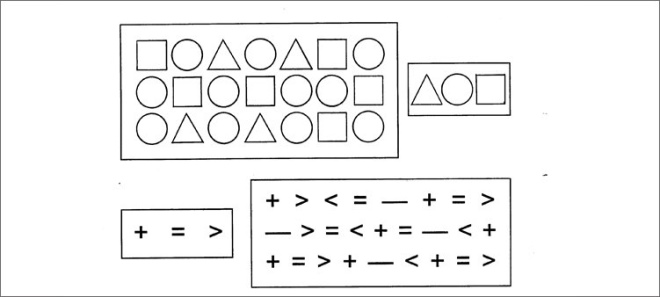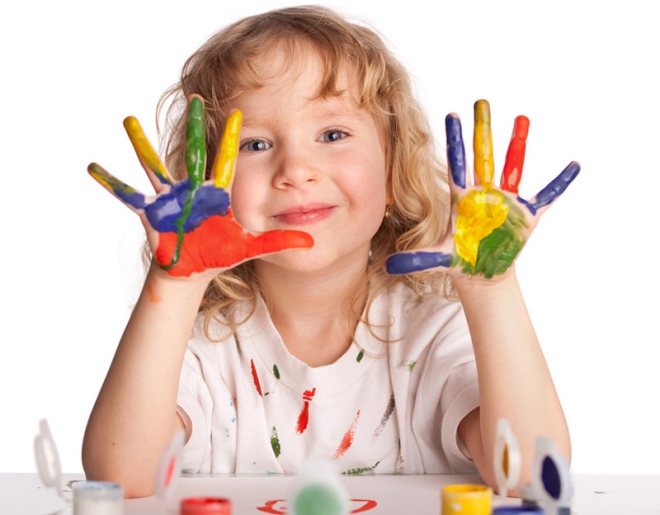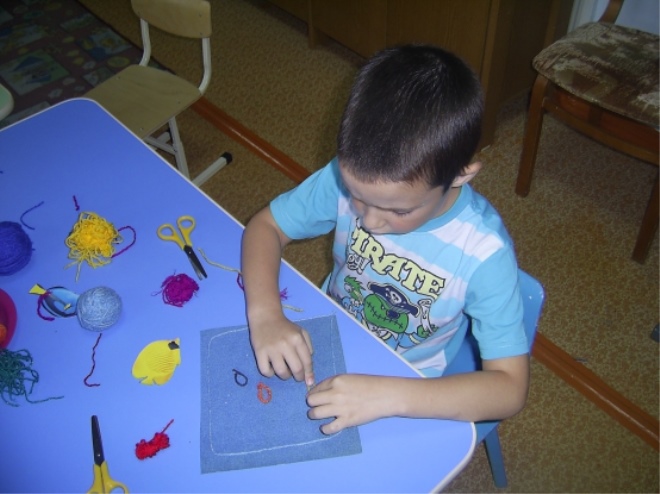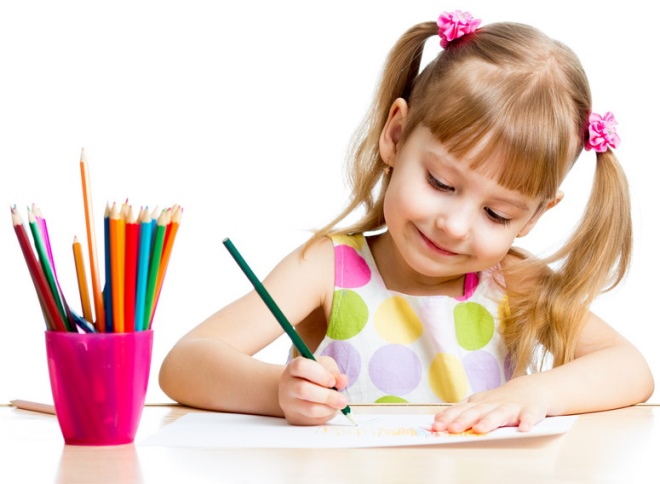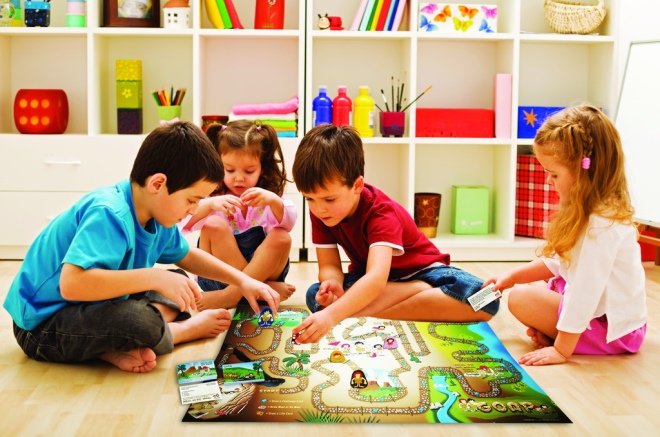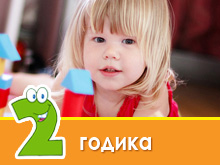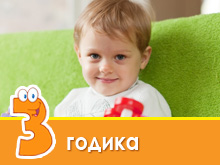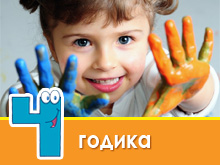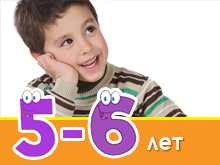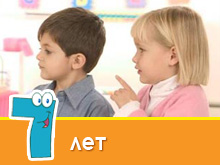Educational exercises for children 7 years
Each kid, becoming older, learns more and more new and interesting. At the age of 7-8, children, as a rule, begin school life. At this age, they already know and are able to do a lot, they are able to study for quite a long time. However, the identity of the matured crumbs is still being formed.
Adults need to set the right direction for the development of their offspring. The main goal of parents in such a period should be to help the child adapt at school, to develop basic mental processes, such as memory, Attention, thinking, speech, imagination, as well as fine motor skills and perseverance. A variety of developmental exercises for children 7 years old will help to cope with this at home.
Tips for organizing classes
If suddenly, for various reasons, the family does not have the opportunity to attend various additional developmental activities with the child, then the parents can work with the child at home on their own.
When a mother works with her baby, not just explaining the necessary task to him and checking the result later, but staying next to him during the lesson, assisting in difficult moments, praises him for his successes, supports failures and patiently explains the material that is difficult for the child. baby starts to try hard. Accordingly, the result of the class will be much higher, he will learn much more information.
At the age of 7 years, children are still dominated by play activities, which, with the beginning of school life, are gradually replaced by learning. If the parent dealing with the child takes into account this important factor and uses the game in his studies, then it will be much easier to interest the baby. And if the baby is interested, then the knowledge he receives at this moment will be remembered much longer and fuller.
Use in practice as much as possible practical activities. For example, you can cook dinner with your child. In the process of this work, you will give your child knowledge of what cutlery exists and what they are intended for, what ingredients will be used, tell about the safety rules in the kitchen.
If possible, let the crumbs show their imagination. Secure knowledge of the rules of etiquette when serving dishes on the table.
At the age of 7-8 years, children love to play in a group. This moment is very important in the organization of the lesson. The company can make a child not only peers, but also parents. You can organize a fairy tale show for grandparents using a finger theater.
You can create your own fairy tale together with the baby, make costumes and necessary attributes from improvised means and show it to your dad. This all helps to develop imagination, fantasy, creativity. Also in the family circle you can arrange a competition for solving logic problems, drawing up a picture from a puzzle, all together solving crossword puzzles, building figures from the designer. In such activities, the results of the baby can be much higher than his parents.
The computer will help to diversify the classes, but it is worthwhile to immediately discuss with the child the time that he can spend with him. You can use it for viewing educational films, solving puzzles online.
As a test of the knowledge gained, you can offer your child a solution to tests of different directions.Such programs automatically provide a comprehensive analysis that helps adults identify gaps in knowledge. Children like these classes very much.
Exercises for the development of logical thinking
- The game "Reading thoughts". An adult or child mentally make a word. The guesser must guess what the word was made with the help of leading questions that can only be answered with "Yes" or "No".
- The game "Rhymes". By the coined word you need to call rhyming words in turn. The winner is the one who called the last word. For example, the word “baby” rhyming words would be “burly, reed, silent”. During this game, in addition to logical thinking, the active and passive vocabulary of the crumbs is well developed.
- Game "Complete the word." The first participant makes a word and writes the letter with which it begins. The following participants write letters one by one before or after, trying to guess what a beginner meant by the word. The game continues until each participant's abilities to compose a word from the written letters have been exhausted. After that, the beginner tells everyone what word he originally thought.
- Game "Find the superfluous." Variations of the game you can think of many. You can use almost everything in the house for it. Alternatively, you can lay out 5-7 vegetables in front of the child, give him time to examine them and ask him to turn away. At this time, you need to add some fruit. After the baby turns around, he should tell about what has changed, what is superfluous and why.
- Game "Collect the story." The game will require a series of pictures, in which the child needs to make a story in stages. Adult lays them in front of the baby in random order. The task of the child is to restore the sequence of images within the meaning and make a story. It is necessary to ensure that children utter sentences completely, do not lose the semantic thread of history.
- Game "Make an offer". The child is invited to make a sentence of the words that are mixed together.
- Solving children's crossword puzzles, playing Sudoku for Kids Excellent help to develop logical thinking and the ability to answer non-standard questions.
- The game "Find the difference." The child is offered to find 10 differences in two pictures. This game can be held as a competition, if there are two pairs of pictures. The task of playing in this version is to find all the differences as quickly as possible.
- Perfectly copes with the development of logic puzzle making. In addition, such games help to develop perseverance, attentiveness and fine motor skills of the hand.
- Passing the maze is very fascinating for children. This game can be offered as a desktop and online. Children will carry the hero along entangled paths with enthusiasm, helping him get to the finish line.
- Pocket tag games.
Classes for the development of memory
- Conversations with a child about how his day went. Such conversations in the evenings will help not only to give him time, which so often parents do not have enough during the day, but also to develop memory and speech. Ask the baby to tell everything in the smallest details, ask leading questions, specify small details (what color was the ball, T-shirt from a friend / girlfriend, etc.). At first, children talk confusedly, incoherently, but gradually the stories become more complete, the sentences are built correctly, the child himself begins to remember the little things, all the details and details.
- Reading of books and memorizing poems. If the child is still difficult to read himself, then do it you. Ask him to retell what you read, express your opinion about what you read. Try to instill a love of reading. If, however, it did not succeed, then make it a rule to read several pages a day, followed by discussion. Memorize at least one quatrain per day.Besides the fact that you will develop this memory, you will contribute to the expansion of the active and passive vocabulary of your child, the development of his speech.
- A game of "words." Ask the child to memorize the words you will call him. Then say 10 words, you can rely on a certain subject (vegetables, fruits, domestic and wild animals, poultry). The task of the crumbs to remember and repeat the largest number of words that you called. If a seven-year-old child could repeat 5 words after you, it is considered that he has a well-developed short-term memory, 7-8 of these words indicate a good development of long-term memory.
- Games with pictures. From 5 to 10 pictures are displayed before the child. After the baby has carefully considered and remembered them, he needs to turn away. At this time, you can remove 1-2 pictures or arrange them in a different sequence. The task of the baby is to name any pictures that are missing or restore the sequence that was previously.
- "Paired pictures." For this game, take on several pairs of pictures of the same size and the reverse side. All of them are mixed and laid out on the table images down. Players must alternately open a pair of pictures and show them to others. If a pair was opened, the player takes it for himself. If unpaired images are opened, they are reversed and put in place, and the turn is passed to the next player. The winner is the one who was able to collect the largest number of paired pictures.
- Ask your child to carefully consider any pattern. After that, turn him over and ask him to tell or write on the sheet in the smallest detail what he remembered. Then show the picture again and check if it was right.
- Association method It helps to remember information that was presented in a chaotic mess. Teach your child to use it. To do this, offer the child to name associations to a word or help him with this. Associations can be very different, ridiculous, familiar to everyone, or understandable only to your child and you. With this exercise, you will help him build relationships between what you need to remember and what he already knows and understands.
- Learning to play musical instruments learning foreign languages, learning to dance - all this is not only useful, but also provides great help in the development of the child.
For the development of care
Correction tests
This exercise perfectly helps to cope with the development of care in your baby. Its essence lies in the fact that the crumb is offered a sheet of paper with the text printed on it. His task is to cross out one letter conceived by adults.
Gradually, you can complicate the task by adding another action, for example, cross out one letter and underline the second one. If the child does not yet know the letters, then you can replace them with any characters.
The same task can be made even harder by asking each character to put a specific character.
Spies
Play with the baby in the spies. To do this, think up a specific cipher for each letter or number - a clue. And then send him a secret message, which he must decipher.
Searches for the missing
In this exercise, the child is offered a set of letters on a piece of paper, among which he must find words on a specific subject. For example, iodolukvraloshkroalmorkovchioriavoyyloldvoamroarkpustadshvvffomidoryrydyroam. Among these letters, the baby must find the names of vegetables and cross them out.
A similar task can be done with numbers. In this case, among the set of digits, the crumb will have to find some specific number. For children who are not familiar with the numbers and letters, this task can be offered with different symbols. Here the child will have to find some specific combination of characters.
Theaters
For this task you will need to pick up some simple poem with one or more frequently repeated words. Start by asking your child to read it expressively. After that, the baby will have to read it again, but with the addition of a condition, for example, one of the frequently repeated words will need to speak very loudly.
If your child has coped with this, then complicate the task by adding another condition. If the crumb still cannot read, then you should do it. He will have to, hearing a certain word, for example, clap his hands.
For the development of imagination
Hand Drawings
Apart from the fact that drawing with palms and fingers perfectly stimulates the development of imagination and fantasy, it also helps in the development of fine motor skills of the hand and develops perseverance in the baby. To do this, offer the crumbs to paint the palm in any color he likes and make an imprint on the sheet of paper.
You can make prints of two palms side by side. Now let the child fantasize and complete his drawing. Maybe he will have a tree or a fairy bird, or maybe a little man with a big beard. The fantasy of children is very rich. She will prompt him an interesting option.
Fun blots
Ask the child to draw on the brush as much paint as possible and drop a large blob into the middle of the sheet. Fold the sheet in half and press down. Next, you need to straighten the sheet and ask the baby to see what these blots look like. Let him finish his drawing.
Magic thread
A thread 30-40 cm long must be dipped in gouache and put on a sheet of paper, you can roll it up as you please. Top cover with the second sheet and press. Next, you need to pull the thread, holding both sheets
Look at the resulting pictures with the child and ask him to tell what they look like, ask him to draw the necessary details.
Evil magician and kind fairy
You will need to put in front of the kid a sheet of paper with two absolutely identical figures. He needs to turn one figure into an evil magician, and the second - into a good fairy using colored pencils. Let the little one dream up and tell you what the evil magician could do, and how the good fairy won over him.
Music stories
Turn on your child to listen to classical music and ask him to close his eyes. He should tell you about what, in his opinion, this music tells what feelings it conveys.
Dance warm up
Dancing to a certain music, the child should tell about the image he conceived, and the other participants - guess what kind of image he made. It can be a funny monkey, a formidable lion, it’s important that the child thinks through his own image and how he should reveal it.
At the age of 7 years, it is already very important to think over purchases of toys or educational materials for your baby. All of them should give the child new knowledge about something.
A very good acquisition will be an encyclopedia dedicated to the subject of interest to the child. In an effort to learn as much as possible new, children with great interest begin to read it.
Also, at the age of seven, you need to work on the development of fine motor skills of the hand. Remarkable help with this will be provided with interesting tasks in addition, coloring, clay, pencils and paints.
A good help is also provided by various constructors, mosaics. Learn with the baby a few rhymes for the independent performance of finger exercises.
And most importantly - always remember that the development of a child depends largely on you. Do not rely only on kindergarten or school in this difficult task.
About educational games for children 6-7 years, see the following video.
